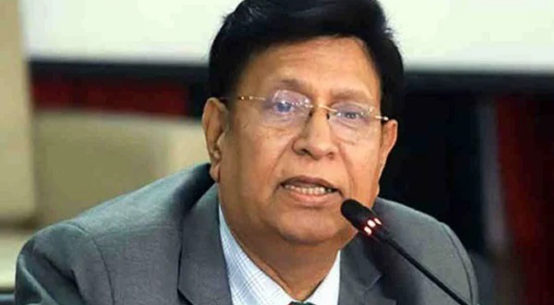The British High Commissioner to Bangladesh Robert Chatterton Dickson recently paid a visit to Unilever’s Plastic Waste Management Project (PWMP) site in Narayanganj City Corporation.
A partnership has been ongoing between Unilever Bangladesh, FMCG (Fast Moving Consumer Goods) company, and UNDP Bangladesh.
In partnership with Narayanganj City Corporation (NCC), they have created a sustainable plastic waste management model (PWM), focusing on the urban areas of Bangladesh, including major cities such as Narayanganj.
The Mayor of Narayanganj City Corporation, Dr Salina Hayat Ivy attended as chief guest in this occasion.
Nguyen Thi Ngoc Van, deputy resident representative, United Nations Development Programme (UNDP), Sarder M Asaduzzaman, assistant resident representative, head of Programme Management and Partnership Support Unit (PMPSU), UNDP Bangladesh, Zaved Akhtar, CEO and managing director, Unilever Bangladesh Limited, Shahidul Islam, chief executive officer, Narayanganj City Corporation, and other key officials from both organisations were present.
The dignitaries visited the plastic collection station supported by the project, observed the daily plastic collection process, visited households to see plastic segregation practices, engaged with community leaders, waste pickers, and street cleaners and finally visited the plastic value addition centre run by the project.
The day-long visit helped the dignitaries learn about plastic waste challenges and how multistakeholder participation can build a sustainable model for the country.
On his visit, British High Commissioner to Bangladesh Robert Chatterton Dickson said, “It has been wonderful to see Unilever, Narayanganj City Corporation, UNDP and the British High Commission working together in the Plastic Waste Management project. We must continue to collaborate to create opportunities for plastic management in the city.”
Zaved Akhtar, CEO and managing director, Unilever Bangladesh, said, “At Unilever, we are committed to improving the health of the planet, and as a part of our Compass Commitment of keeping plastic in the loop, we have a target to collect more plastic than we sell by 2025. With UNDP’s community outreach, Unilever’s business acumen, and Narayanganj City Corporation’s unwavering support, we have created Bangladesh’s largest municipality-backed plastic waste management project. We believe our action will inspire industry and the government to achieve Bangladesh’s Green Growth Strategy and the SDG targets.”
Sudipto Mukerjee, Resident Representative, UNDP, said, “Across the globe, plastic pollution has reached alarming levels, and be it on land or in the waterways, the situation in Bangladesh is rather dire. Only an effective and sustained campaign to drive behavioural change together with a business model that can keep plastic recycled and circulating in the economy rather than add to environmental pollution will help to address the looming crisis. And all of society effort that includes state institutions, private businesses, and citizens coming together is the critical need of the hour. This is exactly what we are trying to do in Narayanganj through our partnership with Unilever and the Narayanganj City Corporation.” According to the media release, the plastic waste management project (PWMP) proposes to find a business model with a value proposition for each actor involved in the plastic waste value chain. Eco-Social Development Organization (ESDO) is the implementing partner of the project, while Ernst & Young Global (EY) is working to create citizen awareness on plastic waste management. Such initiatives are not only reducing environmental impact per capita, but the coordinated efforts are also improving wider developmental agendas, including livelih

